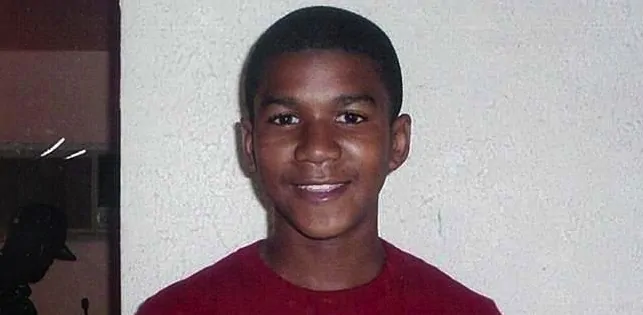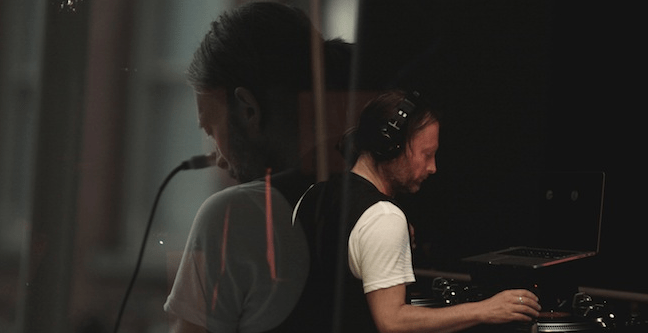
As the trial of George Zimmerman wound down in a Florida courtroom this past week, I had traveled to visit loved ones in a posh neighborhood in Atlanta.
Having traveled a good distance and wanting to stretch my legs, I took a walk through the area and marveled at the luxurious homes. Jeff Foxworthy lived in one. Usher lived in another. Players for the Atlanta Braves lived in several others. I didn’t actually see any of these people—I didn’t see any people who weren’t in luxury cars and SUVs—but I knew they were in there someplace.
As I huffed and puffed up winding hills, I found myself thinking about Usher’s young sons. One is 5 years old. One is 4. In a few years they’ll be driving and walking on the same streets on which I was doing my cardio. I’m certain that whatever vehicles they’ll be driving will certainly earn them a finger-wave or an up-nod acknowledgement from other passing drivers.
But what if they’re on foot?
If they’re on foot, they might be in trouble. If they’re on foot, they better be dressed to the nines. If they’re watched, which they will be, or followed, which I hope they won’t be, good manners might possibly become a matter of life and death. As I pounded the pavement of the privileged, I felt afraid for these precious ones, who will soon inhabit man-bodies, to be seen on the streets of their own neighborhood.
Let me be clear up front: the point of this piece is not to debate the jury’s verdict on George Zimmerman. A different ruling would not have changed the reality we face. The death of an unarmed teenager is now behind us. The verdict on a fearful armed citizen is behind us. Now is the time for many of us to wake up. It’s time to start listening.
Before the Trayvon Martin shooting, I didn’t know enough to feel that horrible fear. Since then, I’ve struck up useless conversations with my adopted son in the Apple store in order to let scowling salespeople know he’s with me. He’s legit. He’s covered in the umbrella of my white privilege. But because he’s South Asian, he will be excused from a good deal of the scrutiny African American boys face.
I didn’t come to know this on my own. In fact, over the last year or so, I’ve been schooled by a black mother. The heartbreaking death of Trayvon Martin has provided several windows of opportunity for a friend here in Durham, N.C. to gently educate me about the realities of raising a black son in this country. It was a direct result of her honest sharing that I knew to be a little bit scared for Usher’s boys.
Val* has graciously given me a few glimpses into the everyday life of her family.
I learned that if she asks her son to deliver a package to the private Christian school that’s housed in a wing of the large mostly white church where he was raised, he will get anxious looks from every single classroom teacher he has to pass on his way to the school’s office.
I discovered that—before and since Trayvon—Val begged her teenage son not to wear his hoodie, even on cold mornings, when driving around in their family minivan. Having a warm head on cold mornings is simply a risk she doesn’t want him to take.
I even heard that Val asks her husband not to jog at night in their affluent neighborhood. When he does, she worries until he returns.
As a wife and as a mother, what Val can’t afford to not think about is this: anyone in her neighborhood who might be out walking their dog after dark does not want to turn around and see a black man in sweats running toward them. So, her husband runs in broad daylight. Her husband—a grown man created in God’s image, who owns a home, is gainfully employed and raising three children—does not exercise outside after dark. (I could have stopped after “God’s image.”)
As might have been predicted—in light of Rodney King, O.J. Simpson and Michael Jackson—much of America’s response to the George Zimmerman “not guilty” verdict has been split along racial lines. Largely, people of color have recognized the incident as one of many signs of perpetual systematic injustice. Largely, white folks have seen this as an isolated incident—not a sign of a systematic injustice. Zimmerman—they say, and the jury agrees—was technically within his rights.
While there is a place for a debate about what that ruling may or may not mean, our first step must be to open up to a reality outside our personal experience. If we refuse to listen to the stories of our brothers and sisters in this moment, refuse to acknowledge the ongoing reality of a country in which young men cannot wear hoods on a chilly morning, we—people with and without privilege—will continue to be baffled by the next judicial verdict that will again tear open our country’s tender racial wound.
If you have ears to hear, I beg you to listen.






















